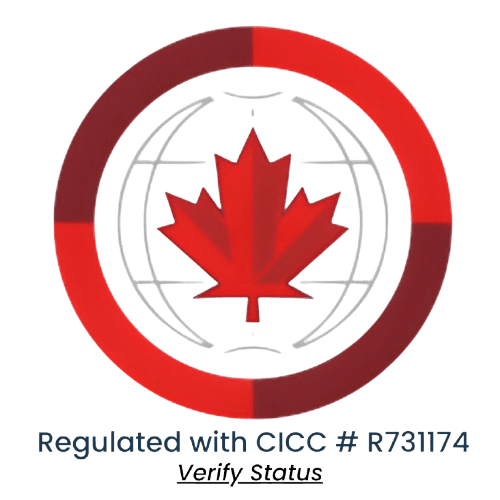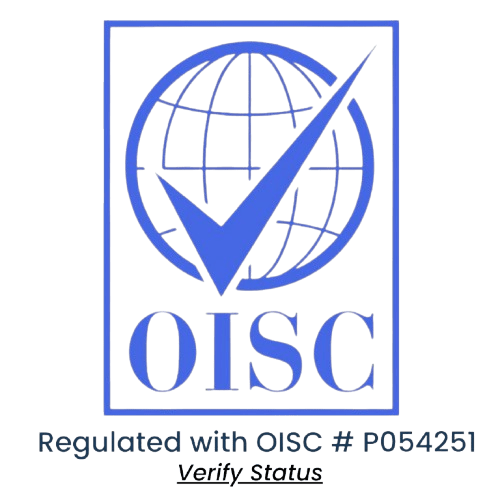Introduction
The Comprehensive Ranking System (CRS) is a crucial component of Canada’s Express Entry immigration program. It determines which candidates in the Express Entry pool receive invitations to apply (ITA) for permanent residency. The CRS score is calculated based on various factors like age, education, work experience, and language proficiency. The higher your CRS score, the better your chances of receiving an ITA, making it essential for applicants to optimize their profile.
This guide explores key strategies to boost your CRS score, from improving language proficiency to securing a provincial nomination, helping increase your likelihood of obtaining permanent residency in Canada.
Key Takeaways
- The CRS score is the main determining factor for receiving an Invitation to Apply (ITA) for permanent residency through Express Entry.
- Major factors influencing CRS include age, education, work experience, language skills, and Canadian connections.
- To boost your CRS, focus on improving language test scores, gaining additional work experience, securing a Provincial Nomination, or optimizing your spouse’s contribution to the score.
- Educational achievements and certifications also play a significant role in raising your CRS.
What is the CRS Score?
The Comprehensive Ranking System (CRS) is a points-based system used to rank candidates in the Express Entry pool. Each candidate’s score is determined by several key factors that reflect their potential for economic success in Canada. Here’s a breakdown of how points are allocated:
- Age: Younger candidates (usually between 20-29) receive the highest points, with points decreasing as age increases.
- Education: Higher education levels, such as master’s or PhDs, contribute significantly to CRS scores.
- Language Proficiency: Strong performance in approved language tests like IELTS or CELPIP results in higher CRS points. The Canadian Language Benchmark (CLB) levels are used to measure this.
- Work Experience: Candidates with more years of skilled work experience, both inside and outside of Canada, earn more points.
- Provincial Nomination: A nomination from a province under the Provincial Nominee Program (PNP) adds a significant 600 points.
- Canadian Connections: Previous study or work experience in Canada, or having a sibling living in Canada, can also add points.
Candidates with the highest scores are most likely to receive an ITA for permanent residency in Canada.
CRS Score Breakdown: What Factors Matter Most?

The CRS point system is divided into multiple categories that contribute to the overall score:
Core Human Capital Factors (Max: 600 points)
- Age: Maximum points are awarded to candidates aged 20-29.
- Education: More points are given for higher educational achievements, with advanced degrees offering the most points.
- Language Proficiency: Achieving CLB 9 or higher in English or French maximizes points.
- Work Experience: Both Canadian and foreign skilled work experience contribute to higher CRS scores.
Skill Transferability Factors (Max: 100 points)
This category combines education, work experience, and language proficiency. For example, high language scores paired with work experience can result in additional points.
Spouse/Common-law Partner Factors (Max: 40 points)
- Spouse’s Education: A spouse with a degree or diploma can contribute extra points.
- Spouse’s Language Skills: Higher language proficiency scores from your spouse improve your CRS score.
- Spouse’s Work Experience: Canadian work experience for a spouse can also boost points.
Additional Points (Max: 600 points)
- Provincial Nomination: Adds 600 points, significantly boosting your CRS.
- Job Offer: A valid job offer from a Canadian employer can add between 50-200 points.
- Canadian Study Experience: Completing a degree or diploma in Canada contributes up to 30 points.
- French Language Proficiency: Adds up to 50 points for candidates proficient in both English and French.
How to Improve Your CRS Score
Improve Language Scores
One of the quickest ways to boost your CRS score is by improving your language test results. Retaking the IELTS or CELPIP exams to achieve a CLB 9 or higher can earn you more points in both core and skill transferability categories. Stronger language scores are particularly beneficial for candidates looking to increase their overall CRS score.
Education Upgrades
Completing an additional degree, diploma, or certification can increase your education points. Ensure that your foreign education credentials are assessed through an Educational Credential Assessment (ECA) to confirm they meet Canadian standards.
Work Experience
Gaining more skilled work experience in your field can enhance your CRS score, particularly if it’s Canadian work experience. Even a year of work in Canada under a valid permit can add significant points to your profile.
Obtain a Provincial Nomination
Applying to a Provincial Nominee Program (PNP) can add 600 points to your CRS score, which almost guarantees receiving an ITA. Research provinces that align with your skill set and apply through the appropriate streams.
Job Offer from a Canadian Employer
Securing a valid job offer in Canada can add between 50 and 200 points, depending on the type of job (classified under NOC codes 0, A, or B).
Advanced Strategies for Boosting CRS Score

Leveraging Spouse or Common-law Partner Points
If you have a spouse or common-law partner, their qualifications can positively impact your CRS score.
- Spouse’s Language Skills: Your spouse’s language test scores (IELTS/CELPIP) can add points to your profile.
- Spouse’s Education and Work Experience: If your spouse has Canadian work experience or higher education, they can contribute additional CRS points. It’s often a good strategy for both partners to take language tests and pursue educational upgrades.
In some cases, if your spouse has a higher CRS potential, it may be advantageous for them to be the primary applicant.
How a Provincial Nomination Can Dramatically Improve CRS Score
A Provincial Nomination is one of the most effective ways to increase your CRS score. Receiving a nomination from a province automatically adds 600 points to your CRS, nearly guaranteeing an ITA. Here’s how to apply:
- Research Provincial Programs: Each province has its own eligibility criteria. Look for provinces with PNP streams that align with your skills.
- Express Entry Integration: Many provinces have streams aligned with Express Entry, meaning you can express interest in a province directly through your Express Entry profile.
Retake Language Tests for Higher CRS Points
Language proficiency is one of the most scalable factors in the CRS system. By scoring CLB 9 or above on language tests like IELTS or CELPIP, you can maximize your CRS points. Higher language scores not only contribute to your core points but also enhance your skill transferability points.
French Language Proficiency
For bilingual candidates, proficiency in both English and French can add 50 additional points, providing a significant CRS boost.
Canadian Study and Work Experience: Key CRS Boosters
Study in Canada
Completing a degree or diploma from a Canadian educational institution can add 15-30 CRS points. For those already in Canada, pursuing further education can be a strategic move.
Work Experience in Canada
Having Canadian work experience is highly valuable. Just one year of skilled work in Canada can significantly increase your CRS score. Those already in Canada on work permits should prioritize accumulating experience in NOC skill levels A, B, or 0.
Express Entry Profile Optimization: Make Sure It’s Up-to-Date
Regularly updating your Express Entry profile ensures you’re maximizing your CRS potential.
Profile Optimization Tips:
- Update with new language test results or educational credentials.
- Include any new Canadian work experience or job offers.
- Ensure your spouse’s information is current and contributing to your overall score.
CRS Score Cut-Off Trends and Future Projections
CRS cut-off scores fluctuate with each Express Entry draw, reflecting the number of candidates in the pool and the government’s immigration targets.
Tracking CRS Cut-Off Scores
Keep an eye on past Express Entry draws to monitor trends and adjust your strategy. As immigration targets evolve, candidates should plan accordingly to stay competitive in future draws.
FAQs about Improving CRS Score
What is the maximum CRS score I can get?
The maximum CRS score is 1,200, with 600 points coming from core factors and an additional 600 from factors like a provincial nomination.
How can I improve my CRS score quickly?
Improving your language scores, securing a provincial nomination, or gaining Canadian work experience can provide a quick boost.
Does retaking the IELTS help in improving CRS?
Yes, retaking the IELTS and achieving higher CLB levels can significantly raise your CRS score.
How much does a provincial nomination increase my CRS score?
A provincial nomination adds 600 CRS points, almost guaranteeing an ITA.
Is age a factor in the CRS score?
Yes, younger candidates (typically under 30) receive the highest points for age.



